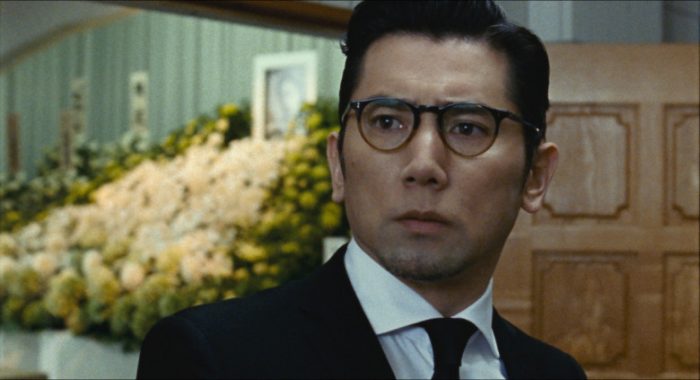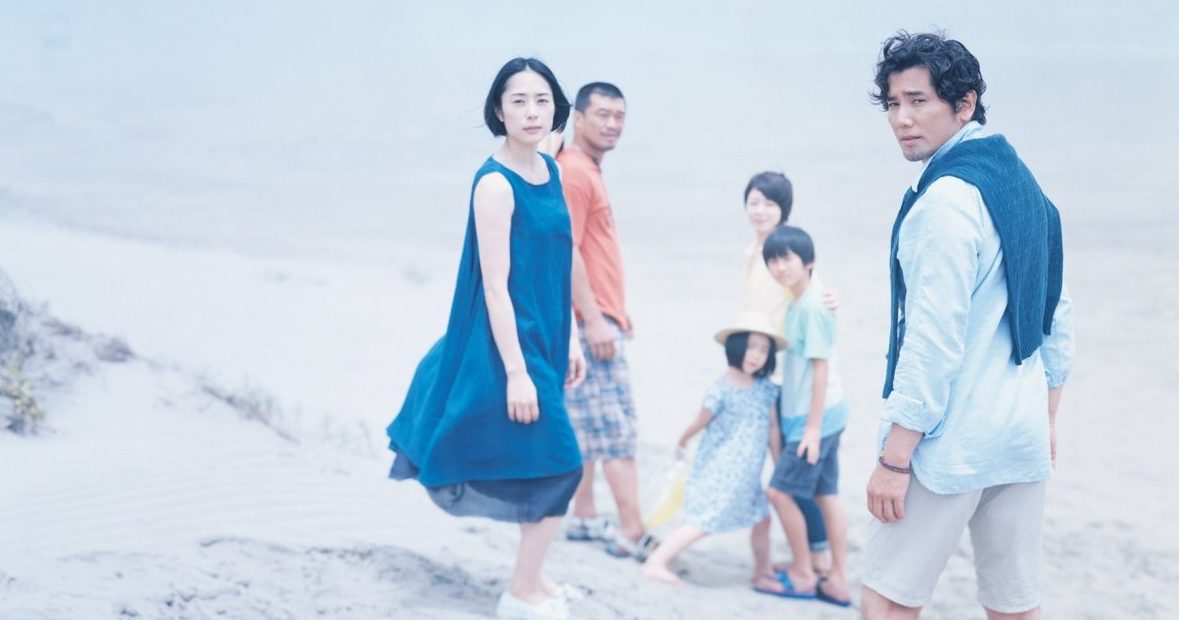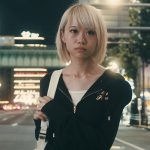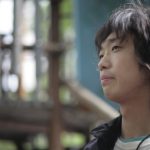Director: Miwa Nishikawa
The Long Excuse, directed by Miwa Nishikawa, is a harrowing exploration of one man’s gradual descent into guilt and the powerful ways in which it engulfs him. Masahiro Motoki plays Sachio Kinugasa, a novelist faced with news of his wife Natsuko’s fatal bus accident – a tragedy that occurred while he was busy cheating on her. As more details of the accident come to light, Yuki, the husband of a fellow victim in the same accident, contacts Sachio, confessing to having difficulty raising his two children alone. Sachio offers to assist in raising his children in an attempt at redemption for his infidelity and negligence. The Long Excuse takes a sobering look at unresolved relationships and the plague of undervaluing the ones closest to us.
Originally intended to be a book and inspired by the aftermath of the 2013 earthquake in Japan, director Miwa Nishikawa adapted The Long Excuse for screen. However, its prose remains perfectly in tact – in many ways, it feels as though you are watching a novel as its pages turn to delicately bring to life the characters that reside within it. There is wonderful subtext weaved into the dialogue. Often it feels as though one could just close their eyes and understand every second of the film without missing a beat, although the pleasures of the film are far from purely auditory. Its brooding lighting design and hypnotic scenery provide a dark coziness that serves wonderfully to distance The Long Excuse from many other Japanese family dramas.

Much like its protagonist, the film’s somber ambiance proliferates its restlessness. Unable to detangle his complex relationship with his wife, Sachio finds, amidst the memories of their loveless marriage, an infinite tenderness that only Natsuko could have awakened in him. Throughout the beginning of the film, Sachio’s remorse seems minimal at best as he continues to appear unaffected by his wife’s untimely passing, much to the disgust of his current mistress whose overwhelming guilt leads her to leave him. Masahiro Motoki’s intriguing portrayal of a desensitized writer, struggling with writer’s block and prohibiting himself from giving into guilt, finds a brilliant balance between a besieged artist and a numb widower.
In a similar vein, the poised correlation of Sachio’s unraveling conscience and the resurgence of his writing after he vows to help care for Yuki’s now motherless children are craftily hidden from our main character. There is a poignant moment when Sachio’s manager turns this muted correlation into a cacophony, saying to Sachio, “Children are a great way for men to indulge themselves…They make me forget what an asshole I am.” The dynamic shift this moment holds for Sachio is palpable, as he must now re-evaluate his growing bond with the children, and the root selfishness that allowed for their meeting in the first place. It is at this point that the film casts its final gaze on self-deception in retrospect. This strange, ill-fated relationship with the children and the tragedy they shared serve as the subject for Sachio’s next book, the publication of which proves that Sacchio had a more significant role in the children’s lives than he anticipated.
The Long Excuse’s greatest triumphant is in its semblance of a zoomed in perspective of collective mourning, and the catapult of unresolvedness from which it can emerge. Of course, our lives continue despite death and tragedy, but if some of that tragedy was in your own hands, would the guilt outlive you? Or could you, perhaps, live long enough to be awarded forgiveness?





